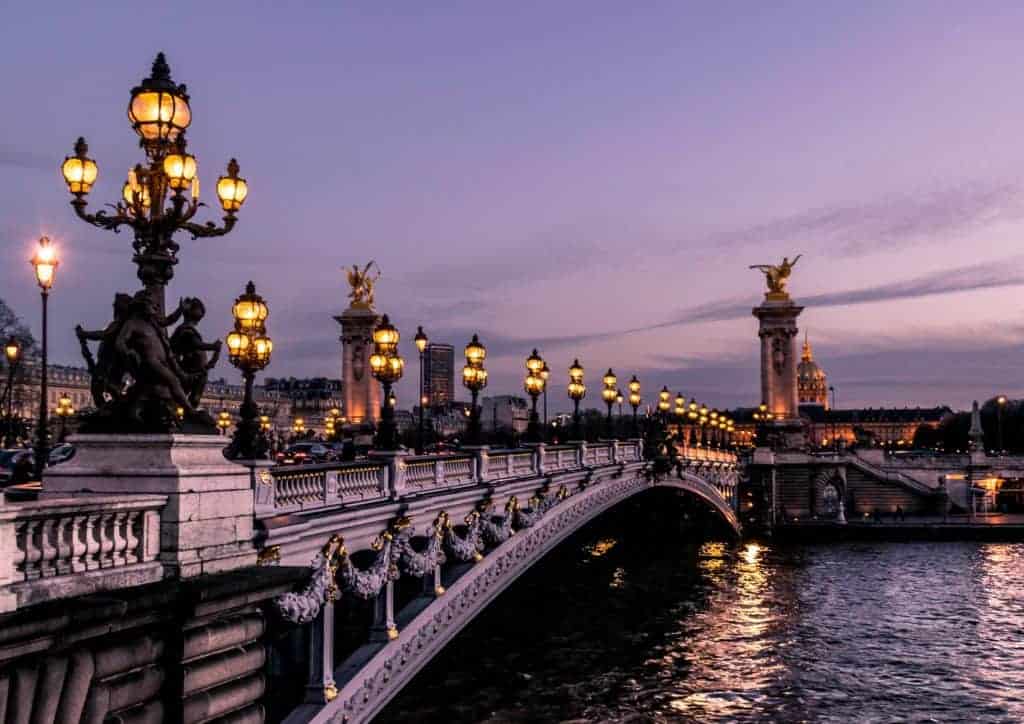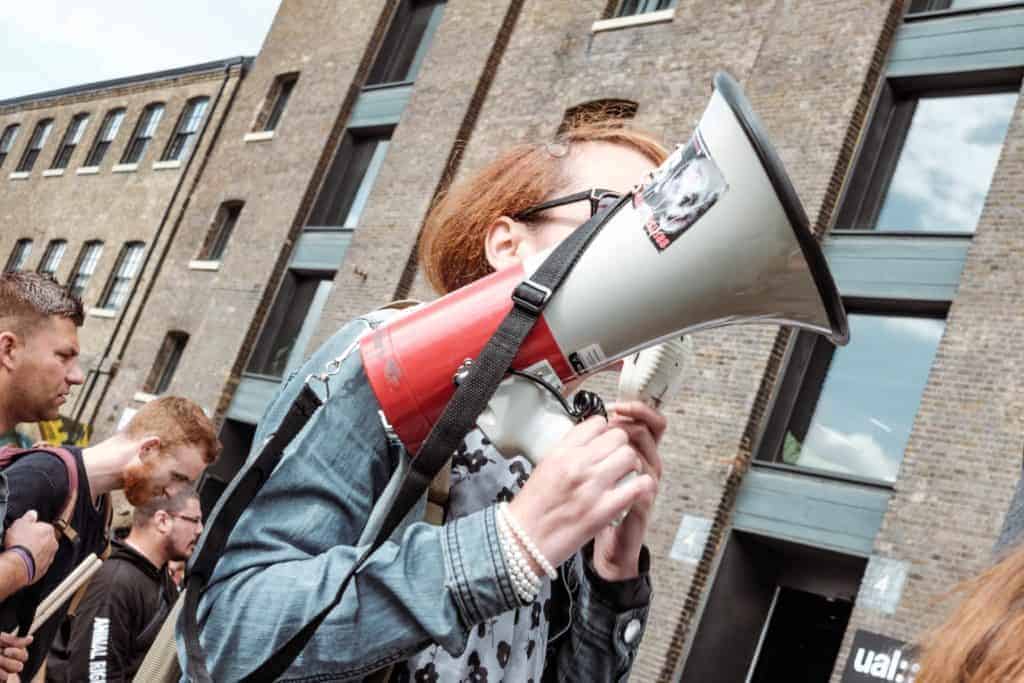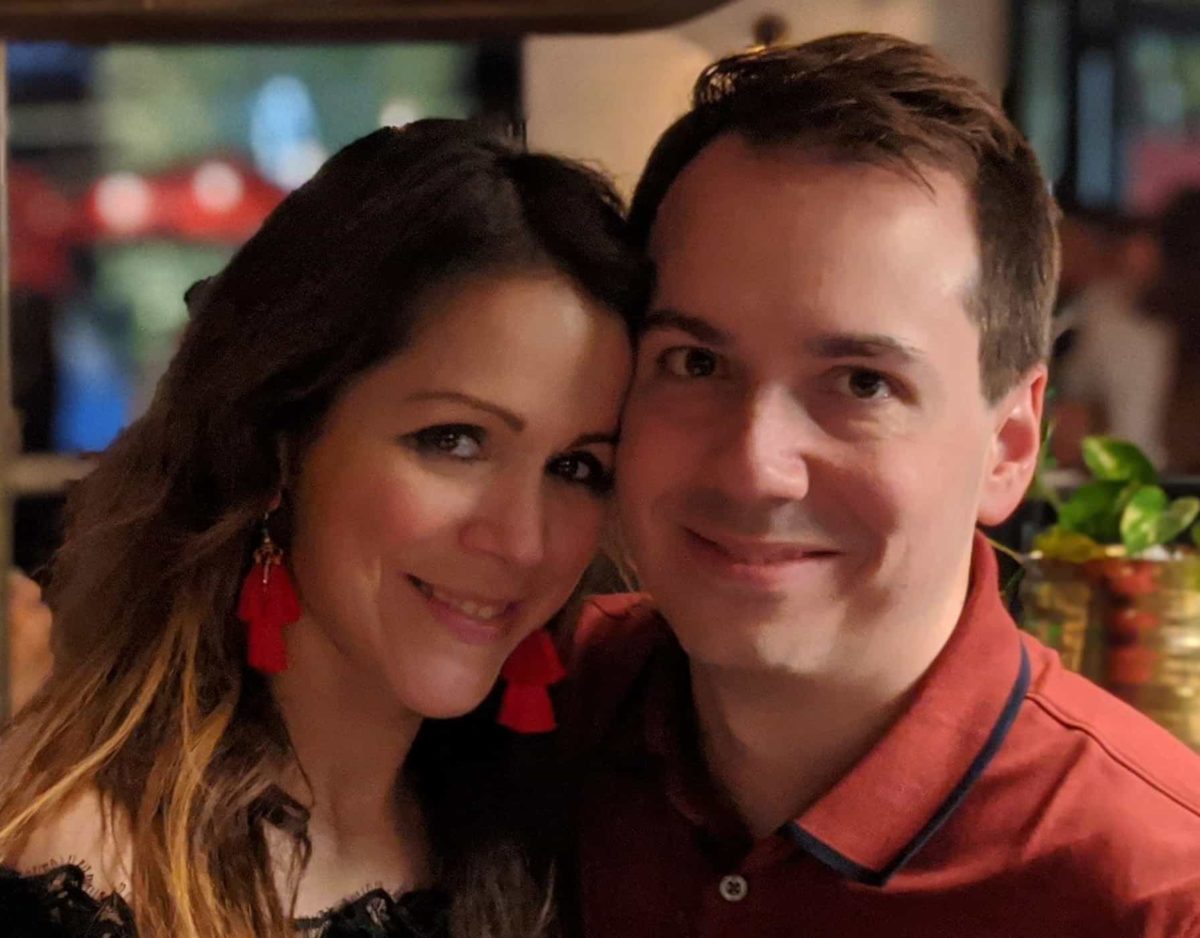Free speech, baby! Yes, I’m talking about that cherished American freedom, the First Amendment’s guarantee of freedom of expression.
I love it, but at the same time shake my head every time I hear many of the misconceptions about it out there. Sure, it’s a huge right (and probably our most important one), but it doesn’t mean that you can say anything you want, at any time or place. There are some really big and important limits that I think everyone should know.
So, to clear this up as much as I can, I made this list of important facts about the First Amendment, to address the misunderstandings that I hear come up again and again.
Big Disclaimer: Yeah, I’m a lawyer, but I’m not giving legal advice here. I’m also oversimplifying everything and speaking in broad generalities, just because it would take hundreds (or thousands) of pages to get into every little nuance of First Amendment law. There may be exceptions to the rules I mention here. If you need legal advice, talk to a lawyer licensed in your area.
Whew! With that out of the way, let’s see how this works.
7 Interesting Things You Might Not Know About Free Speech
1. The First Amendment Protects You From the Government, But Not From Your Boss
At its most basic, the First Amendment guarantee of free speech is meant to protect you from government tyranny. In other words, it protects you from being arrested by the cops (or the FBI or any other government agency) for something you said. That way, you can freely criticize the government without worry. In legalese, we say that there has to be “state action” for your First Amendment freedom of speech rights to apply.
On the other hand, the First Amendment doesn’t protect you at work, especially if you’re employed by a private company. So if you work for Apple and run around the office saying how wonderful Google is, Apple can indeed fire you!
The same applies even if you’re outside the office. If you say something your employer doesn’t like (even if you’re at a restaurant or even at a private home), your employer can punish you. The cops won’t arrest you, but that’s pretty much the extent of your protection.
You’re Probably an At-Will Employee
By the way, allow me a brief detour to explain that, if you work in the US, you’re probably what’s called an at-will employee. This basically means that while you can quit your job at any time, you can also be fired at any time, and for any reason (as long as it’s not illegal discrimination). In fact, you don’t even have to be given a reason – unless you have a contract that gives you additional rights, you basically have no legally-mandated employment security.
This means that you can, indeed, get canned for something you said in the office, or anywhere else (even if in private). There’s really no free speech issue in most scenarios, especially if you work in the private sector.
2. You Don’t Have Freedom of Expression in Private Venues
I remember reading a blog post about someone that started saying really offensive things on an airplane, and wound up getting kicked off the plane. Some commenters were griping about how the dude was only “exercising his First Amendment rights”.
Umm, no. If you’re in an airline’s jet, you’re on a private company’s property. That company owes you zero free speech rights. If the pilot says you’ve got to get out and you don’t, then you’re trespassing, and you can absolutely get arrested for that.
This is basically how it works on any private property, whether it be a restaurant, store, or your neighbor’s house. The owner can kick you out at any time, even if it’s just for something you said. If you refuse to leave, then you’re a trespasser.
3. Freedom of Speech is Not Limitless, and has Restrictions
Freedom of speech rights don’t extend to saying anything and everything, even if you’re on your own property or a public street. You can’t broadcast your homemade adult video on a jumbotron on your lawn, no matter how much you think it’s art. There are several categories of speech that are either limited or unprotected. Some of the big ones are:
- Obscenity (though you have a right to watch legal adult content in private).
- “Fighting words” (basically, you can’t go up to someone and say something that’s really likely to make them punch you).
- You can’t ask a crowd of people to physically attack someone right then and there.
- Other speech that puts people in immediate physical danger (the classic example is that you can’t falsely yell “FIRE” in a crowded theater).
- Death threats.
- Libel and slander (usually not crimes, but you can get sued).

Don’t say it, dude!
The government can also put time and place restrictions on protected speech. For example, you probably can’t march down the street at 3:00 AM with a megaphone hollering that you hate the governor. Also, you can be required to ask for a permit for a protest that will block public roads, thought the government has to work with you to make it happen. They can’t just deny you for no good reason.
4. The First Amendment Doesn’t Cover Social Media
This is an emerging area of the law so things might change, but the idea is that Facebook, Twitter, and other social media providers are private companies. You have no First Amendment protection against their “censorship”.
As a matter of corporate policy, many social media companies try to respect freedom of speech ideals. But, they have no obligation to.
5. Freedom of Expression is More Limited in Other Democracies
Most countries with democratic governments allow free speech in terms of letting their citizens criticize the government without fear. But, many have laws far more restrictive than the First Amendment as far as “offensive” speech goes. For example:
- You can get arrested for “hate speech” in some European countries.
- Some democratic countries that still have kings and queens (constitutional monarchies) do not allow you to “insult” the royal family.
As far as I know, the United States has the most legally-mandated freedom of expression in the world, but don’t make the mistake of assuming that you have the same freedom of speech everywhere. You can generally talk politics freely in other First-World countries, but tread very carefully otherwise, especially if you’re going to say something negative about a group of people (even if you feel that it’s true).

Be careful what you rant about…Or just follow your mom’s advice – if you don’t have something nice to say, say nothing at all!
6. The Constitution Means What Judges Say It Means
In our system of government, the courts (judges) get to interpret laws (including the Constitution). At the end of the day, your pet theories (and mine) don’t matter. (Imagine the chaos if everyone ran around interpreting laws however they wanted).
The hard fact is that judges are the ones who decide what laws mean. It’s also the reason why laws “change”, even if they aren’t amended. As new situations come up and wind up in the courts, judges apply the law as best they can, and judges that come later take their cues from the earlier decisions.
For example, here’s how the issue of free speech and social media might play out:
- A social media company bans a user for “hate speech”.
- The user sues, saying that social media has become the same as a public plaza (a “public forum”), and should, therefore, be required to allow free expression.
- The judge says “no, a private company can do what it wants”.
- The user appeals and goes all the way to the Supreme Court.
- The Supreme Court decides.
- Whatever the Supreme Court said is now the law in the entire US.
7. Be Very Careful With the Internet and Other Countries’ Laws
Let’s say a country has laws that make it a crime to insult that country’s president. I sit at my desk here in Miami and start insulting said president over here on my website. Five years later, I go that country as a tourist, and am arrested I soon as I land. Is that legit?
The answer is that I don’t really know, but would not be surprised if I get prosecuted (in that country). This is kind of another developing legal area, and it’s not always clear. All I can say is that you might want to be careful when traveling to non-democratic countries, especially if you’ve broken their laws while online (and super-especially if you’re a citizen of that country).

Once you say it online, it might be there forever.
Summing It Up
That’s my quick guide to freedom of expression under the First Amendment to the US Constitution. The big rule of thumb to remember is that, in the US, freedom of speech means that you can’t get arrested for what you say. Beyond that, be careful, and remember that private companies owe you no free speech rights.
What do you find most interesting about freedom of speech?




Great post Miguel!!!
Thank you!!!
This is very interesting. I try to operate under the rule that if you don’t have something positive to say, don’t say anything at all. In some cases, we do need to say negative things (eg. performance reviews-thank goodness I do not have to give or get those anymore), but then my rule is to make what I say as constructive as possible. Thanks Miguel. Very educational. Tom
Thanks Tom. I try to go by that rule as well. I can also be brutally honest, which means a lot of the time I just say nothing at all, unless I’m at work (where I have to fight, as an advocate).
I find that, while the 1st Amendment does not apply outside any government institutions, there is a culture of freedom of speech, at least in the US. So you’ll see that newspapers may publish opinions contrary to it’s normal bias.
Also, the 1st Amendment doesn’t “grant” the right to freedom of speech – it merely protects it, or “guarantees” it as you put it. Depending on what (political?) theory you hold to, freedom of speech is something people inherently have, no matter what any law says.
But often people do conflate freedom of speech with the first amendment. They also often forget that freedoms – including freedom of speech – come with handling the consequences of those freedoms.
Hi Joe,
I agree that there’s a big free speech culture in the US, and that many companies try to respect those values as a matter of policy.
My main goal in writing the post was to clear up the misconceptions I keep hearing, in that many people fail to realize that, as a strictly legal matter, the First Amendment is meant to protect you from the government. It’s just a pet peeve of mine to keep hearing folks claim freedom of speech in all sorts of non-government settings. I generally favor it as a matter of policy, but it’s not the law.